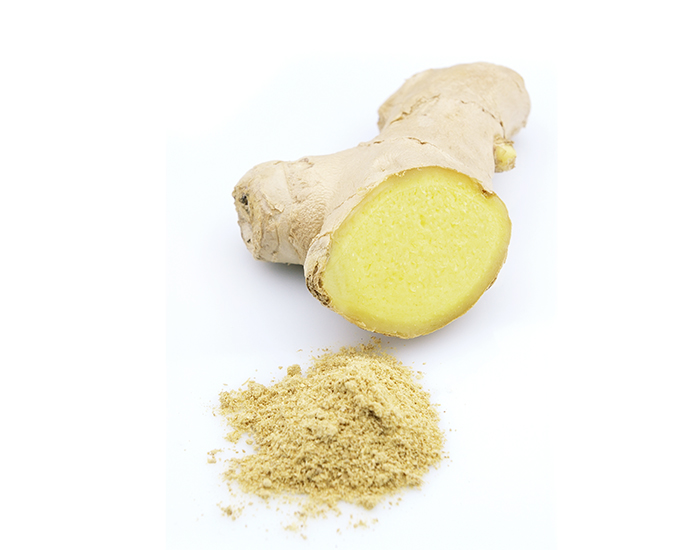
While ginger adds a lot of flavour to food, it’s also been used as an alternative form of medicine throughout history. If you’re rooting for a healthier you, consider adding ginger to your diet. Here are the top ten health benefits of ginger.
1. Better Digestion
Ginger helps speed up the digestion process and empty your stomach more quickly. Someone with digestive issues, such as indigestion, ulcers, constipation, and IBS, might find relief by adding it into their regular diet.
Studies have shown that those who consume ginger digest twice as fast as those who don’t. It increases movement in the digestive tract and promotes healthy enzymes that help break down the foods we eat.
2. Improves Immunity
Gingerol, the bioactive compound found in raw ginger, boosts immunity with its antimicrobial and antifungal properties. Ginger also contains antioxidants and anti-inflammatory properties.
The combination of these properties has many benefits. These ginger health benefits and side effects improve coughs, lower fevers, fight off infections, relieve headaches, and ease other symptoms associated with common colds and the flu.
3. Alleviates PMS Symptoms
Menstrual pain is a common symptom during a woman’s cycle, but incorporating ginger might make it more manageable. Using ginger during the first three days of your menstrual cycle helps with pain relief, and the anti-inflammatory properties relieve the bloat that is common with PMS.
4. Relieves Nausea and Upset Stomach
One of the most well-known health side effects of ginger is its ability to relieve nausea. Whether it’s from motion sickness, migraines, morning sickness, or general stomach problems, ginger helps calm an upset stomach.
It does so with its anti-inflammatory properties, better digestive responsiveness, and hormones that regulate blood pressure to calm the body.
5. May Help With Cancer
Studies on ginger have shown that some of the benefits of gingerol may prevent some cancers. While it is not a cure-all, its antioxidant and anti-inflammatory properties help protect your body.
Ginger is also a safe option to reduce the symptoms of nausea and pain often associated with cancer treatment. When you’re undergoing chemotherapy, adding ginger into your diet helps combat the treatment’s side effects of nausea or dizziness.
6. Reduces Pain
Ginger is a natural pain reliever. This makes it an excellent substitute for over-the-counter pain medications. Gingerols act as an anti-inflammatory and work to eliminate compounds in the body that result in pain.
Anti-inflammatory properties in ginger reduce the pain associated with arthritis and increase joint mobility. Arthritis sufferers are often prescribed anti-inflammation medication to lessen their symptoms, but ginger works as a natural alternative.
7. Healthier Skin
Ginger improves the health of your skin with antioxidants, increased blood circulation, and antiseptic properties. The antioxidants protect the skin from UV rays and slow the breakdown of collagen, making the skin look younger and tauter.
Antiseptic properties improve acne symptoms, and with raw ginger, you can help with scarring caused by acne. Ginger’s anti-inflammatory properties also aid in healing irritated skin.
8. Weight Loss Aid
Some studies have shown that consuming ginger helps aid in weight loss. Ginger controls insulin levels, boosts metabolism, and aids in workout recovery. Ginger helps with weight loss by giving your metabolism a boost and creating a feeling of fullness to prevent overeating.
It isn’t a fix-all, but when incorporated with other weight loss efforts, it can supplement your results.
9. Prevents Cardiovascular Disease
In addition to its other properties, ginger also works as a blood thinner, which is beneficial in preventing cardiovascular issues. Blood thinners reduce the risk of blood clots, which lowers your risk of heart attacks or strokes.
Another way ginger prevents heart disease is by lowering blood pressure and cholesterol. The build-up of cholesterol can clog arteries and increase the risk of heart problems.
Ginger also improves circulation and lowers blood sugar, which helps the heart stay at peak performance.
10. Improves Brain Function
Chronic inflammation affects your brain over time and may cause it to decline. This may result in cognitive conditions, mental health struggles, or Alzheimer’s disease.
Ginger reduces inflammation and protects the brain from free radicals due to powerful antioxidants. It also improves memory function by increasing the neurotransmitters in our brain responsible for memory, focus, and reaction time.
Ginger even releases dopamine and serotonin to help fight mental illnesses like depression and anxiety.
How to Incorporate More Ginger in Your Diet
If you’re wondering how to eat ginger for health benefits, there are many ways to start incorporating it into your diet. Find the method you enjoy and add it to your routine.
1. Ginger Tea
One of the most common ways to consume ginger is in tea. To make ginger tea, you add pieces of chopped or sliced ginger to water and steep it.
To add more flavour, include things like honey or lemon. Some brands of premade tea bags offer ginger varieties, though they may not be as beneficial as raw ginger.
2. Spice Up Your Foods
Add minced ginger to meals to reap the benefits and add extra flavor. Ginger works well in stir-fries, soups, and curries. You can even add ginger to desserts or smoothies.
3. Ginger Juice
A daily shot of ginger juice is one of the most convenient ways to consume ginger. You can make them at home using a juicer.
Some people even consume ginger raw for more immediate health benefits, if they don’t need to make a full meal or enjoy drinking it.